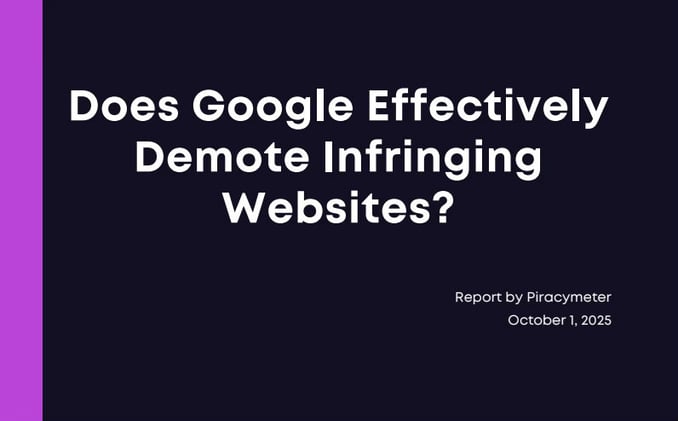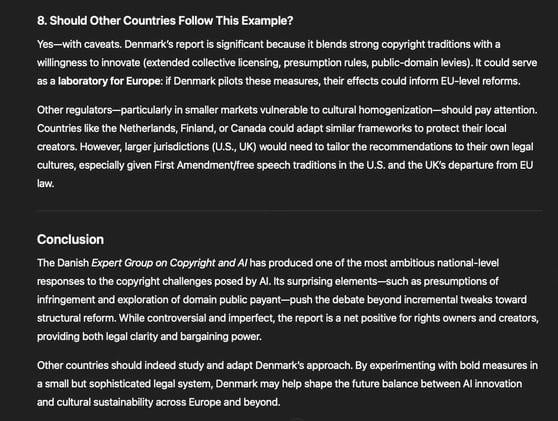- Pascal's Chatbot Q&As
- Archive
- Page 27
Archive
Sites like ThePirateBay, ext.to, and 1337x not only survive waves of delistings but thrive in Google’s most valuable search real estate. This undermines licensed platforms...
...distorts competition, and raises systemic risks under EU law. If Google does not proactively adapt, regulators will be compelled to intervene under the Digital Services Act.

By affirming that AI training methods can embody technological improvements rather than mere abstract ideas, the USPTO has opened the door for more robust, reliable IP protection in machine learning.
For AI makers, patents are once again a viable moat. For rights owners, an escalation in the importance of IP strategy: AI techniques become assets as critical as the data they are trained on.

Oracle AI World lineup: we’re beyond exploration and into large-scale embedding of AI—but many challenges remain in execution, scaling, integration, and realizing measurable ROI.
ROI is credible where AI augments existing processes (e.g. predictive maintenance, process optimization, demand forecasting, customer insights) rather than trying to reinvent entirely new workflows.

GPT-4o: In my view, the Sora 2 “opt-out default” strategy is a daring gamble, not a clever one — and I lean toward calling it reckless. It might succeed in the short term...
...(shock value, scale, momentum, fear of litigation cost), but in the medium to long term it is too brittle, legally vulnerable, and reputation-damaging.

Gemini: The prevailing “opt-out” and “pay-per-output” frameworks, often presented as solutions to the intellectual property dilemmas posed by AI, are fundamentally untenable.
Technologically the influence of training data is permanently & inextricably encoded into a model’s core parameters, rendering retroactive consent withdrawal through opt-out a functional impossibility

GEMA, representing around 100,000 songwriters and composers, claims that OpenAI trained ChatGPT on copyrighted German song lyrics without acquiring licenses or compensating authors.
The evidence centers on ChatGPT’s ability, when prompted, to reproduce original texts by artists such as Reinhard Mey, Inga Humpe, Rolf Zuckowski, and Kristina Bach.

How professionals in law, publishing, consumer goods, and enforcement perceive AI’s risks and opportunities.
While AI promises efficiency and detection power, organizational readiness and literacy remain alarmingly low, creating gaps ripe for exploitation by counterfeiters and IP thieves.

The strategy & operational structure of a Perpetual Innovator can only function if supported by a specific cultural fabric. This culture is intentionally cultivated by a different style of leadership.
To create the context for success: articulating the vision, securing resources, removing impediments, and fostering an environment where talented people can do their best work.

Enterprise search is moving from “nice to have” to “mission critical.” The organizations that thrive will be those that combine technical sophistication, cultural adoption, and governance discipline.
Search is no longer about looking things up—it is about how enterprises think, act, and compete in a world where knowledge is contested, fluid, and increasingly mediated by AI.

DK: If an AI provider cannot show what training data was used, regulators and courts should assume that copyrighted content was included. This is a powerful, pro-rightsholder stance not widely seen.
The group suggests moving to explicit consent (“opt-in”) for TDM, which would radically increase licensing leverage for creators.

The AI debate is no longer about “if” but “how.” Scholarly publishing stands at a crossroads where technical capability is outpacing policy adaptation.
AI is not just a tool — it’s a cultural disruptor. Whether it strengthens or erodes scientific trust will depend on the shared norms, governance models, and incentives that publishers choose to build.












